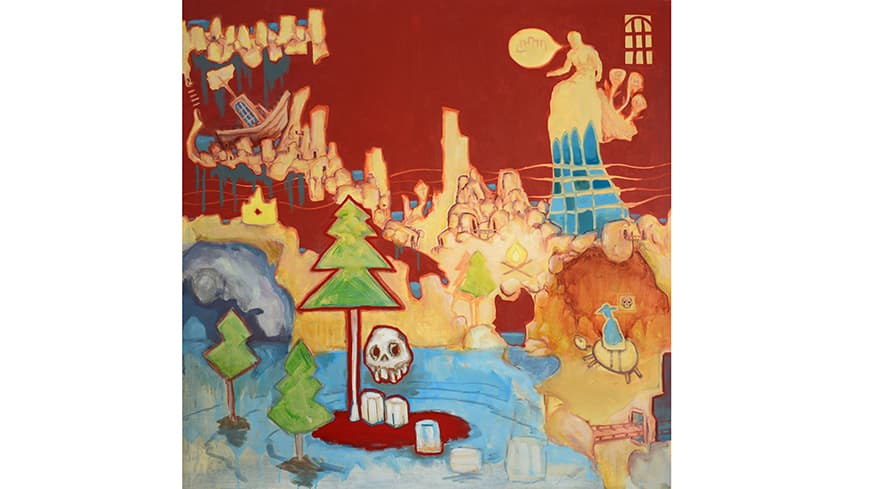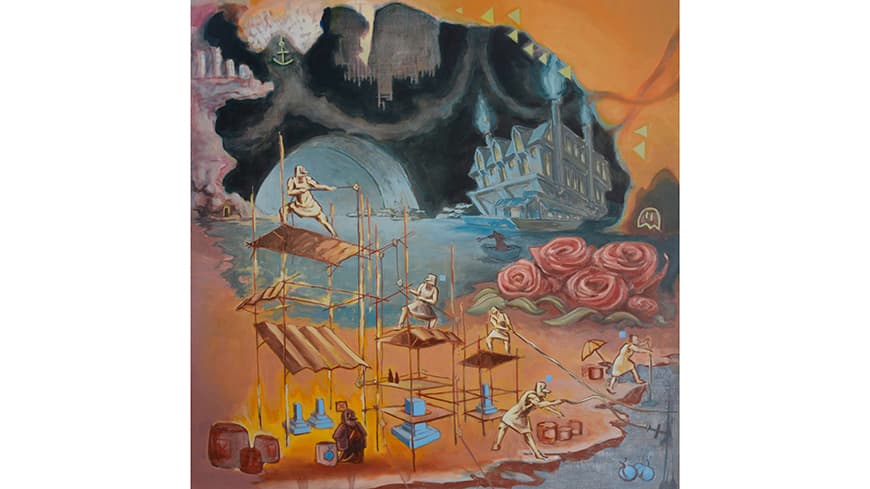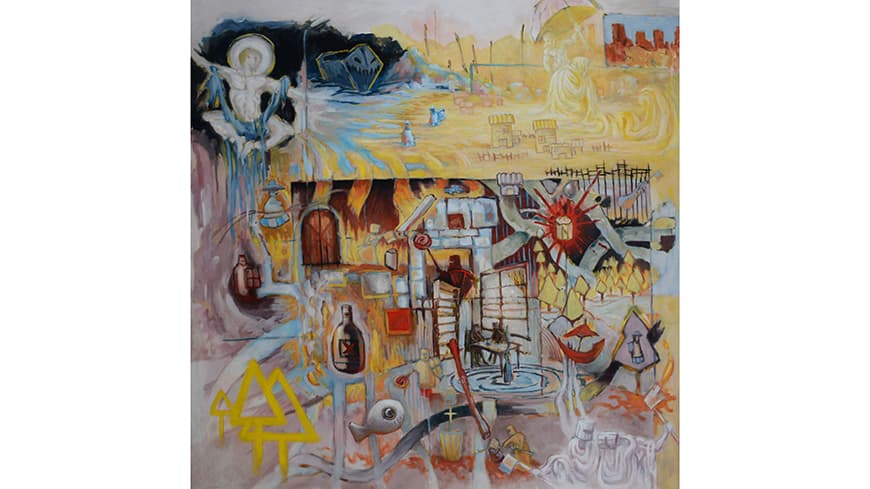
A new art exhibition at Edith Cowan University (ECU) features videogame-inspired paintings that explore the complexities of Western Australia’s intersecting cultural perspectives, practices and histories during the pandemic.
The Far-Away Island exhibition at Spectrum Project Space marks the culmination of ECU PhD candidate Harrison See’s research.
Mr See’s study explored cross-cultural studio collaboration as a means of discussion, exchange and shared storytelling. His research also looked at how this type of collaboration can disrupt and expand a painter’s perspective and approach to sole practice.

Artist residency sparks idea
Mr See developed an interest in exploring this topic following his time spent in China.
“Living, researching and painting in unfamiliar cultural spaces became an important catalyst to disrupt and expand my own ideas, practices and perspectives,” he said.
“It became an opportunity to experience the perspectives and practices of others, as well as reflect on assumptions about my own perspectives and practices.
It was this experience that led him to focus on this theme of cross-cultural collaboration for his PhD research.

Pivoting due to the pandemic
Mr See said his initial plan was to return to China, as well as other parts of Asia.
“However, with the advent of COVID-19 my travel plans were grounded, and the focus of my research shifted to the diverse cultural communities of Western Australia,” he said.
“While in Perth, I collaborated with artists from Indonesia, South Africa, Singapore, Hong Kong and Mainland China; as well as Australian-born artists of diverse cultural heritages.”
The paintings in Far-Away Island are a direct response to Mr See’s experiences working with these artists.
“Through this body of work, I unpack and explore how cross-cultural collaboration has shifted my approach to painting as a storytelling medium,” he said.
“The resulting paintings represent fictional landscapes portraying a metaphorical response to Australia as a space of multiculturalism, as well as a space of past and present cross-cultural tension.
“Integrated into this metaphor is a videogame approach to storytelling, as such Far-Away Island has been imagined as a series of dynamic videogame screenshots.”
Far-Away Island opens at Spectrum Project Space at ECU’s Mount Lawley Campus on Wednesday 7 September. The exhibition runs from 8 September to 6 October. For more information and to book free tickets visit the webpage.
![Harrison See (2022), Excavation (after encounters with Mah, Nisbet and Brooks-Crew) [detail], oil on canvas, 152.5cm x 91.5cm.](https://www.ecu.edu.au/__data/assets/image/0005/991913/see.jpg) Harrison See (2022), Excavation (after encounters with Mah, Nisbet and Brooks-Crew) [detail], oil on canvas, 152.5cm x 91.5cm.
Harrison See (2022), Excavation (after encounters with Mah, Nisbet and Brooks-Crew) [detail], oil on canvas, 152.5cm x 91.5cm.


